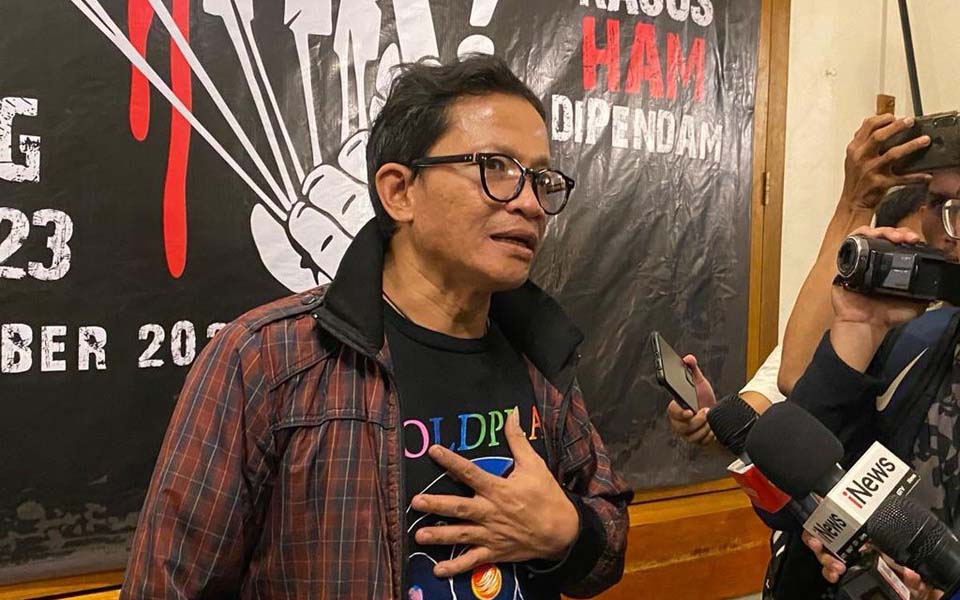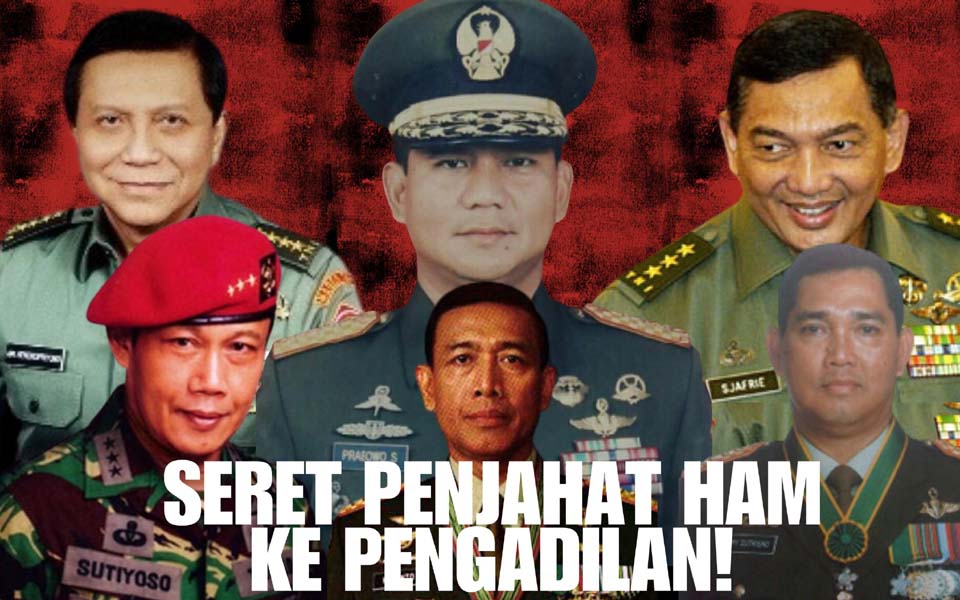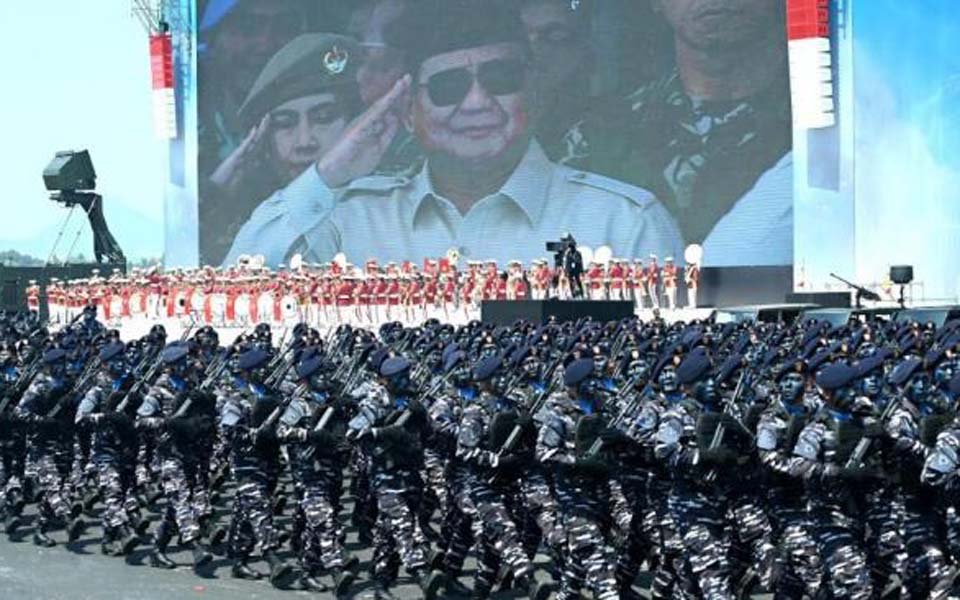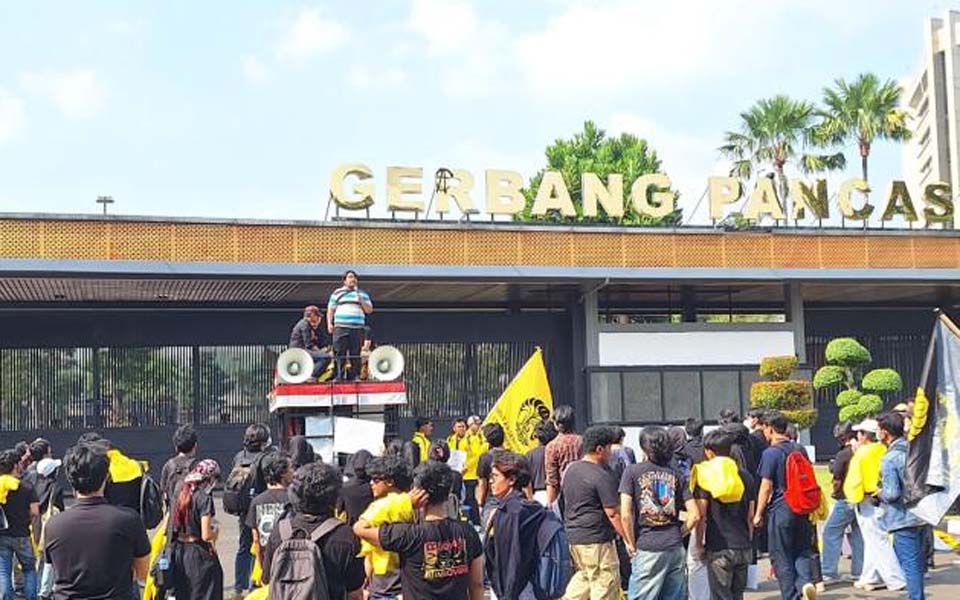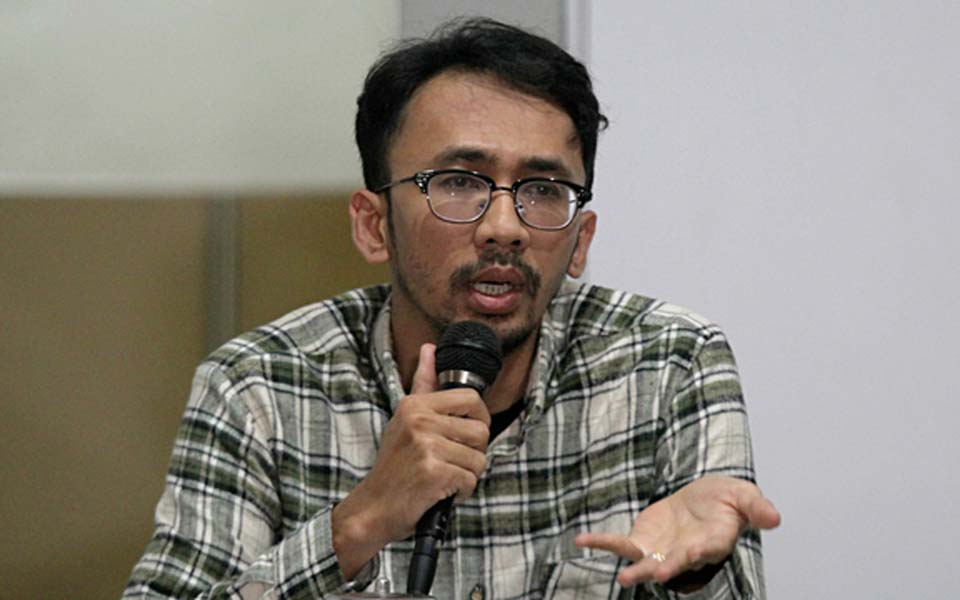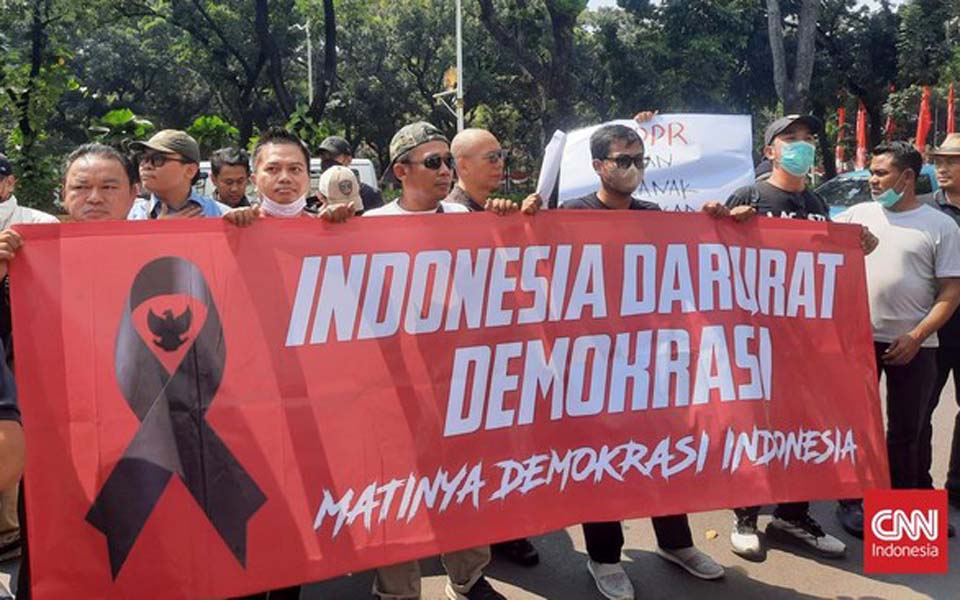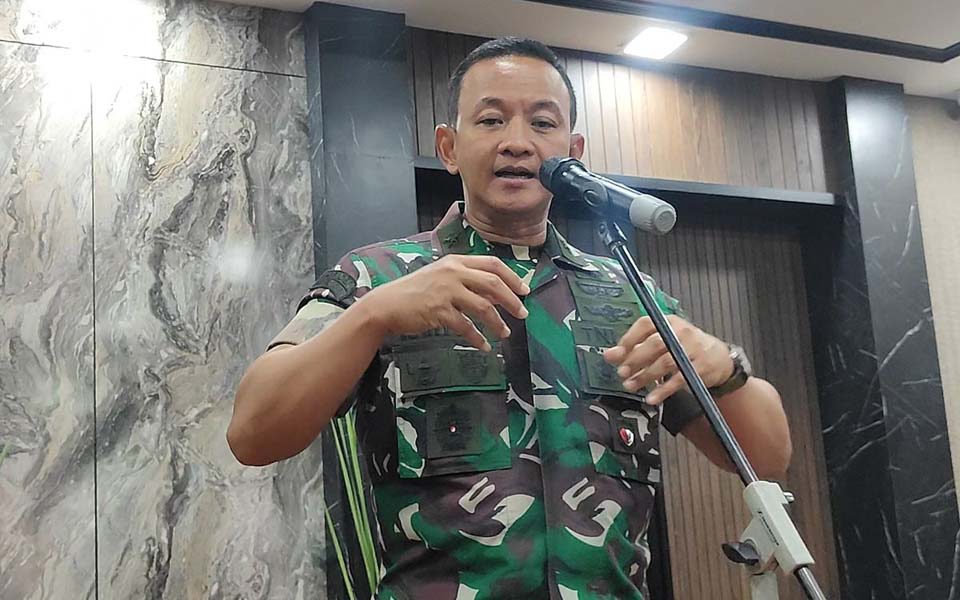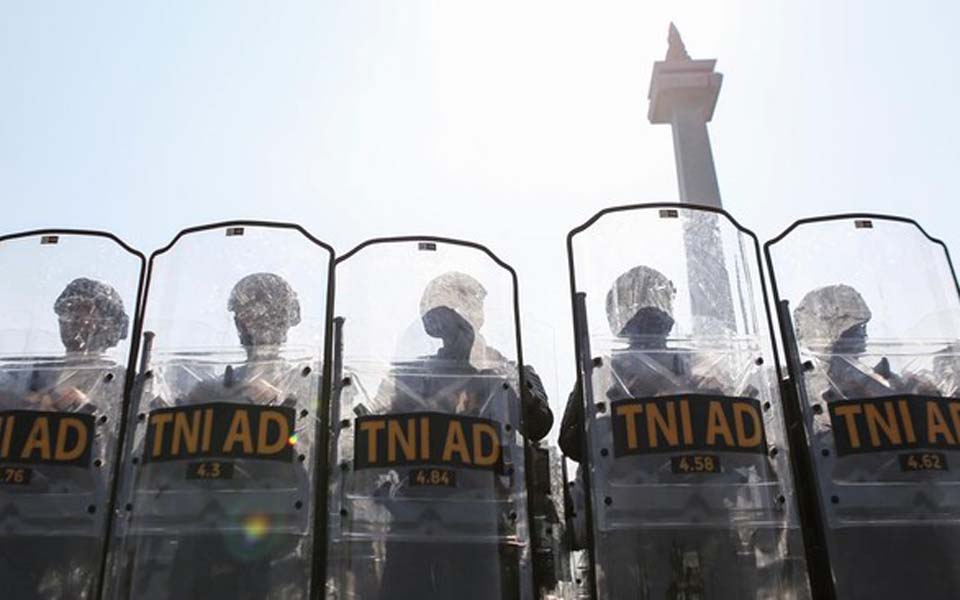Singgih Wiryono, Danu Damarjati, Jakarta – A factual witness testifying during a formal review of Law Number 3/2025 on the Indonesian Military (TNI), Usman Hamid, has revealed that more than three articles were changed during revisions to the law.
This was discovered on March 17 during a meeting between Hamid and House of Representatives (DPR) Deputy Speaker Sufmi Dasco Ahmad and several leaders of the DPR's Commission I.
During the meeting, Hamid said that Ahmad gave him four sheets of paper containing the three revised articles. Hamid said the three articles that Ahmad stated were revised consisted of:
1. Article 3 on the position of the TNI,
2. Article 47 on the placement of active TNI members,
3. Article 53 on changes to the retirement age.
Hamid however already had other data. The Executive Director of Amnesty International Indonesia had received information that Articles 7 and 8 had also been revised.
"I immediately confirmed whether it was true that there were only three articles [that were revised]. Dasco said yes, there are no more", Hamid said at a Constitutional Court (MK) hearing on Monday July 7.
Hamid then asked whether Article 7 had been revised during the discussions on the Draft Law on the TNI (RUU TNI). Ahmad said no, but another DPR member said that yes it had been revised leading to another debate.
"Similarly, I asked if Article 8 had changed. Dasco said no. Another House member said, 'Oh, it's been revised, Pak [Sir]. Why has it changed?' Then a debate ensued", Hamid added.
The former Commission for Missing Persons and Victims of Violence (Kontras) Coordinator said that this was not the first time that the DPR leadership and members were not united in responding to issues surrounding the RUU TNI.
For example, with regard to public access to revisions to the TNI Law. When Hamid questioned the lack of public access to the draft, through the DPR's website for example, Ahmad replied that it was already available, but other DPR members refuted this.
"Bung [Brother] Dasko immediately said, 'Of course it's already available'. But several House members said, 'Oh, not yet, Pak'. 'Oh, why not yet?' Then Bung Dasco asked, 'What's the problem? Why hasn't it been published?'", Hamid said.
At that time, Commission I argued that the RUU TNI was still in the process of being revised, so it could not be uploaded to the website for public access. Hamid questioned this saying that despite the revisions, the public actually needs access to the revisions.
"If we are being questioned for criticising the basis of a different RUU, why aren't we being given the same RUU, or the correct RUU?", Hamid said.
Flawed policy making process
The formal review of the TNI Law revisions held at the Constitutional Court have touched on the policy-making process, which was deemed not to be in accordance with the legal provisions on lawmaking.
The petitioners are essentially questioning the violation of a number of principles in the formulation of legislation as regulated under Article 5 of the Law on the Formulation of Legislation (UU P3).
The principles in question include the principle of clarity of purpose, the principle of appropriate institutional or forming office, the principle of compatibility between type, hierarchy and content material, the principle of implementability, the principle of usability and effectiveness, the principle of clarity of formulation and the principle of openness.
The principle of openness based on the elucidation of Article 5 letter g of the P3 Law emphasises that in the formulation of legislation, starting from planning, drafting, discussion, ratification or determination and promulgation, it must be transparent and open.
This is so all levels of society have the broadest possible opportunity to provide input in the formulation of legislation.
[Translated by James Balowski. The original title of the article was "Usman Hamid Ungkap UU TNI Tak Hanya Berubah 3 Pasal tapi Lebih".]





